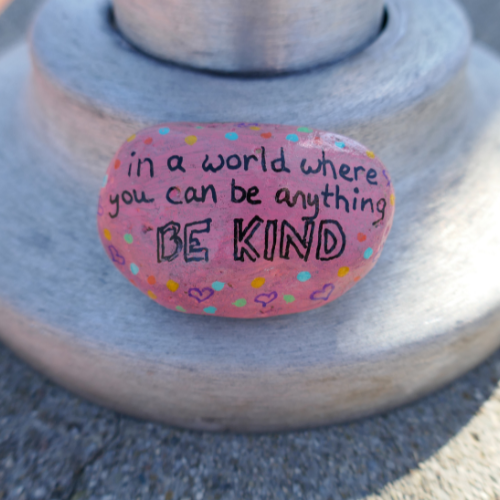 Kindness – showing compassion to ourselves and others
Kindness – showing compassion to ourselves and others
“We cannot do great things on this earth, only small things with great love” Mother Teresa
Kindness involves actions that are selfless; putting compassion for others before one’s own interests. Thus, the act of kindness simply means being generous and considerate, whether that be to family and friends, or people we don’t know. Being kind is something we can practice to not only benefit others but also ourselves.
Acts of kindness may include: being sensitive to another’s needs, holding space for others, providing practical help with chores or tasks, and helping others resolve their issues and problems. It may be something significant, or something quite simple, and the possibilities are almost endless.
There is no doubt kindness feels good. In fact, being kind has many benefits, not only for others, but also ourselves. These include:
- Boosting one’s immune system,
- Reducing stress and improving feelings of wellbeing,
- Improving energy,
- Supporting strong and healthy relationships.
Research shows that when giving to others, more happiness is in turn felt by the giver, as well as the recipient, of the kindness. Simply, the more you give, the more positive you feel about yourself and about others. People who witness or benefit from someone’s kindness and compassion are also more likely to be kind themselves, creating what may be described as an ongoing wave of kindness and gratitude.
Random acts of kindness (sometimes regarded as acts of kindness to a stranger) are another wonderful way to spread compassion and can include:
- paying it forward – treat someone to something, like buying a cup of coffee for the person behind you in the café queue
- sending notes of gratitude – hand-write a thank you note to someone you admire or who has helped you out
- post a sticky note – stick post-it notes with nice messages written on them around your house or somewhere in public
- volunteering – being a volunteer helps others and is good for you too
- donating to a charity store – help people out by giving away what you no longer want or need
- smiling at strangers – smiling is contagious and it makes you feel good if people smile back
- letting people know you love what they do – this could be someone you know or people you admire, like a writer or musician
Source: Acts of kindness and compassion | healthdirect
Self-kindness is also important for our wellbeing. We spend more time with ourselves than anyone else and how we relate to ourselves has a huge impact on how we feel and how we treat others.
Despite this, the seemingly simple idea of being kind to yourself can be difficult for some. Many people find it easier to be compassionate to others than to themselves. A great place to start is with self-talk, making sure what you tell yourself is uplifting and positive, as often as possible.
By practising our own self-care and compassion we will then be more likely to be kind to others and share the benefits this wonderful way of living offers.
By Kerrie Clayton
Kerrie has been a member of the AHHCA for over 10 years and is currently part of its Committee of Management. She is a qualified Holistic Health Practitioner and Reiki Master. Kerrie may be contacted via www.wellnesswithkerrie.com
References:
Four tips to embrace kindness (bupa.com.au)
Acts of kindness and compassion | healthdirect
Kindness and Its Benefits | Psychology Today
Why Random Acts of Kindness Matter to Your Well-being | Psychology Today



Leave A Comment